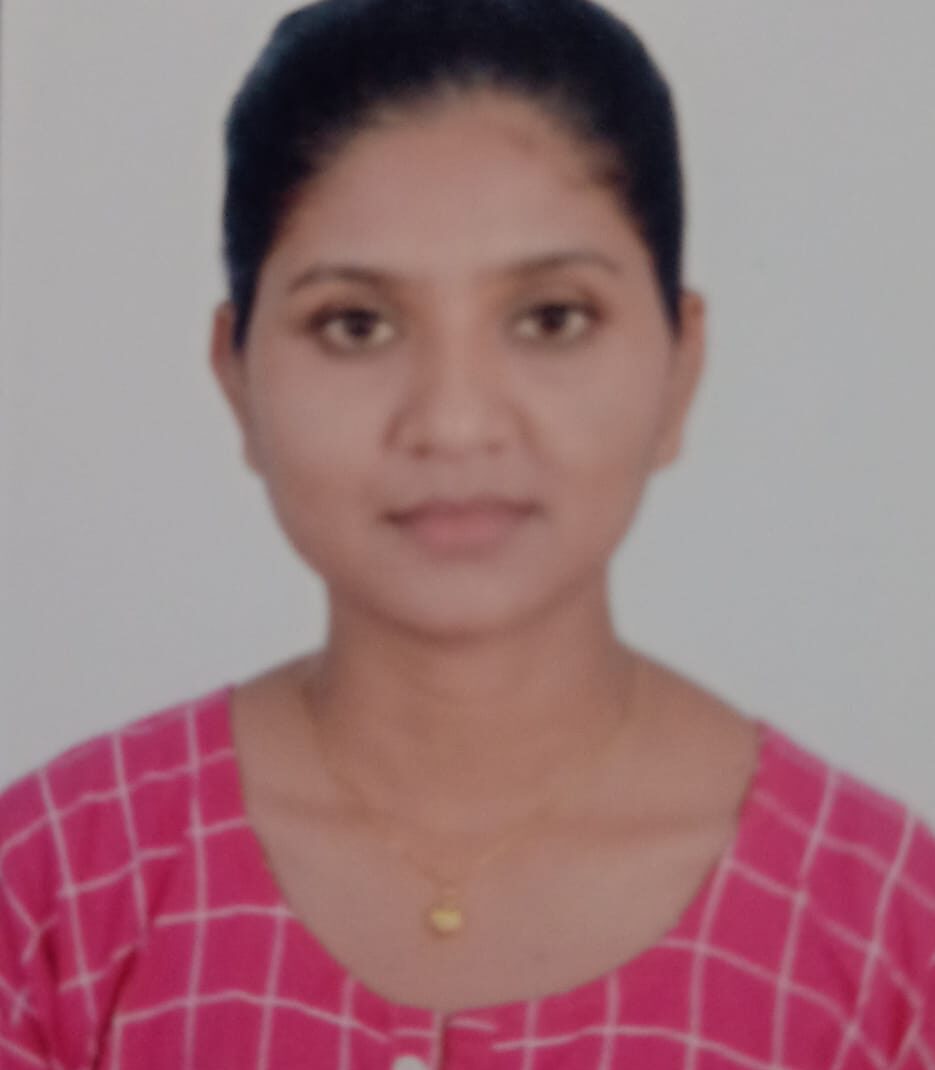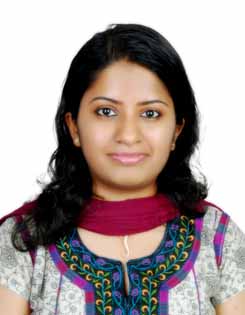FIRST YEAR ENGINEERING
DEPARTMENT STRENGTH
At Vidyalankar Institute of Technology, education is an enriching journey of exploration, discovery, and growth. In the First Year Engineering Department, this journey begins the moment students step onto campus. through our thoughtfully designed Orientation and Induction Programme, we ensure every learner feels welcomed, supported, and inspired to embark on a new chapter of learning and self-development. Rooted in a student-first and learner-centric approach, our faculty act as mentors and guides, walking beside every learner, offering direction, support, and continuous handholding. Each classroom session sparks curiosity, every lab nurtures creativity, and every achievement becomes a shared milestone.
Beyond academics, we emphasize holistic development through a rich blend of curricular, co-curricular, and extracurricular activities that build confidence, communication, and collaboration.
At VIT, we focus on building strong foundations academically and personally so that every student is empowered to explore, evolve, and excel far beyond their own expectations.


DEPARTMENT ACTIVITIES
- First Year Orientation Programme
- Induction Programme
- Freshers’ Eve
- Parent Teacher Interaction
- Monday Formals Activity
- Vocational Grooming Session
- Educational Tour
- Women’s Day Celebration
- YouTube Live Doubt Clearing Sessions
- Online Literary and Creative Competition
- Exclusive E-Internships for FE Students in Lockdown
- Ganitalankar Shodh
- Class Snapshots


About our Faculty
I take immense pride in welcoming engineering aspirants, my dear students and their parents to the First Year Engineering Department page. At First Year, we strive to build a strong foundation and nurture multi-dimensional skill sets in our student community by offering a judicious mix of curricular, co-curricular and extra-curricular activities. There are handholding programmes for students who need extra help like Intensive Education Development Program, Study Circles, crash courses before exams. Personal attention towards each student is facilitated through Mentor-Mentee meetings, professional counselling sessions, First Year In-Charge and Class Representative meetings, and occasional parent teacher gatherings.
We have implemented many activities at the First-Year level to help students explore their interests such as educational tour, short seminars, guest lectures, Women’s Day celebration, poster competitions, various workshops like PCB designing, computer skills and mini projects. All departmental activities and achievements are presented in a quarterly e-newsletter ‘VIBGYOR’.
list of FACULTY
FACULTY PROFILES
ABOUT RESEARCH PUBLICATIONS
In the words of Dr. B. R. Ambedkar, “Cultivation of mind should be the ultimate aim of human existence.”
VIT has consistently fostered a strong research culture, creating avenues for collaboration and future academic pursuits for both faculty and students. The Institute provides a vibrant and supportive environment that promotes meaningful research activities. The Department actively encourages faculty across disciplines to enhance their scholarly experience by authoring and publishing papers in prestigious national and international conferences and high-impact journals.
Dr. Uday Kashid published a paper titled Examining the Impact of Machine Learning on Streamlining Data Analysis in Real-Time by MCDM.
Dr. Ambadas Deshmukh published papers titled Fuzzy Transportation Problem Using Trapezoidal Fuzzy Numbers with Error by Using Newton’s Divided Difference Interpolation, Fuzzy Transportation Problem Using New Ranking Techniques to Order Pentagonal Fuzzy Numbers with Error Using Lagrange’s Interpolation Formula.
Prof. Vishwa s Patil published a paper titled Enhancing the Teaching-Learning Experience with the Implementation of MATLAB Tool: A case Study.
Dr. Aniket Kundu published a paper titled As Computational study of development of a Catalyst-Free Protocol for the Synthesis of (3-Nitro-2-phenyl chroman-4- yl)-1H-pyrazole.
Prof. Nilima Main published a paper titled Corrosion in pacemaker: Mechanism, Implications & Advances in prevention.
Prof. Sonaali Borkar published papers titled- Suggestion of an optimized & miniature Biogas Model for a small-scale level, Survey on Biomaterial Shrilk as Sutures in medical field.
Prof. Rupesh Parthe published a paper titled The Important of centroid in Image processing
Prof. Ishan Upadhyay published papers titled- Efficiency Analysis of Solar Panels Using Artificial Incandescent Light: A Research and Development Perspective, Real-Time Health Monitoring with Arduino Uno and MAX30102: Accuracy and Accessibility
Dr. Leena Potdar published papers titled- Forensic Linguistic study of empirical testing methods for author identification of unknown online messages on social media-Twitter, Suicide Notes: An analysis using TGSP Framework, Decoding Legal Discourse: A Linguistic Exploration of Legal English and its distinctive features, Stylistic Analysis of Suicide Notes, Syntactic and Demographic Analysis of Suicide notes in Greater Mumbai.
Prof. Meenakshi Nandula published a paper titled Constraints to Contributions: Exploring Women’s Breakthroughs in STEM fields in India.
Dr. Micky Barua published a paper titled Technology of engineering education: An understanding of the present-day processes, conditions and limitations in which learning and teaching take place.


STUDENT ACHIEVEMENTS
The fruits of our labour – our student achievements! Our student achievements are a measure of attaining their short-term or long-term educational goals.
It gives us immense pride to share the achievements of our First Year Engineering students. We highly appreciate Somita Chaudhari who was invited to attend the Ocean Science Meeting 2020 at San Diego, USA from 16-21 February 2020. Utkarsh Gaikwad was the Winner from Mumbai Division for the competition held by “Cognizance IIT Roorkee on Artificial Intelligence and Machine Learning”. Ram Pandey, Neel Bajaj, Anuj Shah, Sudip Khandekar, and Shubh Jangam were the Finalists at the “Smart India Hackathon 2019”. Akshaj Raut was one of the finalists in the Drone racing competition held by IIT Bombay during TECHFEST 2020.
TECHNICAL ACTIVITIES
The First Year Engineering Department is committed to fostering holistic development among students by organizing a range of technical activities that ignite curiosity, creativity, and critical thinking. Events such as Anveshan – the project exhibition serve as a celebration of innovation and inquiry, providing a platform where students bring their ideas to life and witness the power of applied imagination. Technical workshops like Ideas to Impact: Innovation Lounge Workshop offer hands-on experiences that bridge the gap between theory and practice, equipping students with essential skills through immersive learning. Initiatives like the Ideathon bring together budding innovators in a dynamic environment that encourages ideation, collaboration, and problem-solving. Through these thoughtfully curated activities, the department nurtures a culture of exploration and excellence, laying a strong foundation for future academic and professional pursuits. We have organized FDPS on ‘Project Management and SWOT Analysis’, ‘Bridging the Gap between Campus and Corporate’, and STTPs on ‘Innovations and Applications of Engineering Mathematics’, ‘Applications of Smart Materials in Technology’, and ‘Advanced Tools and Methodologies in Technical Teaching’.

INTERNSHIPS
Growing is a lifetime job. When tending a vast and beautiful garden, one has to plant many seeds, never knowing ahead of time which one produce the most glorious flowers, which will bear the sweetest fruit. A good gardener plants them all, tends and nurtures and wishes them well. Opportunities are the best fertilizers, and the opportunities for self-development supplied here at the First Year Department are in the form of internships, extra-curricular activities, motivation for start-ups and laboratory facilities for collaborative learning.

Students of First Year Engineering are continuously motivated to go for various internships. Mohit Santosh (INFT A) is doing a paid internship at Gaming Monk. Hrishika Samani (INFT B) has done a paid internship at Contetra Universal LLP for 1 month and is currently doing a paid internship at Aakriti Techfest. Hussain Rampurawala (INFT A) is currently doing an internship at VHIRON since past 5 months. Hritik Shelar (INFT B) is currently an intern at Internshala. In addition to this, many students of First Year Engineering have done internships at FE Department wherein they worked on E-book of Engineering Chemistry-II under the guidance of Prof. Sonaali Borkar.
First Year students are also encouraged for entrepreneurship. Shubh Jangam came with one start-up “Shaalastic LLP- EdTech” which focuses on up skilling students in today’s world of constant changes. He also provides technical support and consultancy services to coaching classes to take their business online. He also started a new business, “WeeToo E-commerce Private Limited” – an E-commerce start-up focused on Micro entrepreneurship among students by enabling them to become resellers and start earning without any capital investment. Tanshiq Kale and Tanvee Jaiswal developed an Android application “Covid-19 Maharashtra” for spreading awareness about COVID-19.
LABORATORIES HIGHLIGHTS
“Must we always teach our children with books? Let them look at the stars and the mountains above. Let them look at the waters and the trees and flowers on Earth. Then they will begin to think, and to think is the beginning of a real education.” – David Polis

“Tell me and I forget, teach me and I may remember, involve me and I learn.”
This philosophy lies at the heart of the First Year Engineering Department’s approach to learning, where practical application takes precedence over rote theory. The department has dedicated laboratories for Chemistry, Physics, Mechanics, Engineering Drawing, AutoCAD, Mathematics and the Language Lab. Each designed to foster project-based and collaborative learning.
Students are encouraged to undertake mini projects that help translate foundational concepts into practical outcomes. The Physics Lab features advanced experimental setups such as the Hall Effect apparatus, while the Chemistry Lab engages students through practical applications using a spectrometer, soil testing kits, and a battery fabrication kit. The Mathematics Lab enhances analytical skills through case studies and MATLAB-based practical, fostering problem-solving through real-world contexts. In Mechanics, Engineering Drawing, and AutoCAD, students work with modern simulation tools to visualize and design engineering solutions effectively. Complementing technical proficiency, the Language Lab employs a cloud-based digital language software that builds communication and listening skills, helping students prepare for global proficiency tests such as TOEFL.

DOWNLOAD SYLLABUS
- Information Technology
- Computer Engineering
- Electronics and Computer Science
- Electronics and Telecommunication Engineering
- Biomedical Engineering
- Information Technology
- Computer Engineering
- Electronics and Computer Science
- Electronics and Telecommunication Engineering
- Biomedical Engineering
























